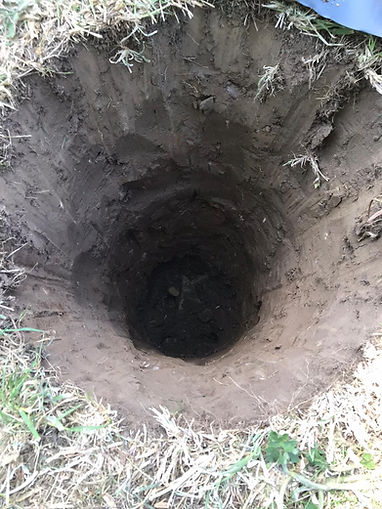
Phase II Intrusive Investigations
Should the Phase I Desk Study identify a risk of possible contamination issues which could affect the site, from either on-site or off-site sources, then a Phase II Intrusive Investigation is then also required in order to discharge planning conditions imposed by the local authority.
The Phase II Intrusive Investigation involves physically testing the soil and collecting soil and/or rock samples for contamination and geotechnical laboratory testing, in addition to follow-up ground gas monitoring.
The soil laboratory testing then allows for an assessment of the soil in terms of any potential contamination risks it poses and also its geotechnical capabilities. Ground gas monitoring allows for an assessment of any possible ground gas risks which could affect the site.
There are a range of techniques that can be used for Phase II Intrusive Investigations, all of which are dependent on the actual requirements and needs of the investigation that is to be carried out. These techniques include hand-excavated trial pitting, machine-excavated trial pitting, windowless sample boreholes, cable percussion boreholes, and rotary open-hole boreholes.
All site works are supervised by a qualified engineer representing RB Geotechnical.
We will then use all of this gained information to compile a Phase II Interpretative Report, which will summarise the findings of the Intrusive works and give conclusions and recommendations as to what (if anything), needs to be done next.
